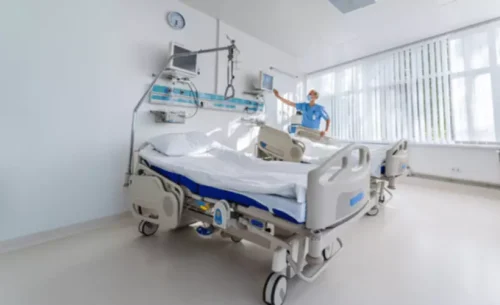
Despite its apparent positive response in GAD, there are no known controlled studies of agomelatine in PD or SAD or any known ongoing trials in anxiety disorders. The Food and Drug Administration (FDA) has approved several selective serotonin reuptake inhibitors (SSRIs) and serotonin norepinephrine reuptake inhibitors (SNRIs) for PD, GAD, and SAD. Despite these classifications, medications not approved for a condition are commonly used “off-label” in clinical practice.
- If you’ve ever been treated for one of these disorders, you may have attended psychotherapy, received anti-anxiety medication, or both.
- Beta-blockers are sometimes given to people with anxiety because they can make the physical symptoms of the disorder feel better.
- Beta blockers work by blocking beta receptors, which are found mostly in your heart, kidneys, blood vessels, and respiratory system.
- D-cycloserine is unique in that research to date has focused on the effects of DCS on anxiety in the context of psychotherapy or fear learning.
- In some people, beta-blockers can lead to shortness of breath, chest tightness, or even full asthma attacks.
How beta blockers work and treat symptoms
- Adverse effects include weight gain and other antihistamine effects like sedation and dry mouth.
- A thyroid storm affects the body’s ability to regulate many systems, making it a medical emergency.
- It also covers how to take the medication, its benefits, common side effects, and the possible risks of taking beta-blockers for anxiety.
- They do this by blocking the action of stress-related hormones like adrenaline.
For example, your healthcare provider may prescribe a beta-blocker to help lower your blood pressure or treat heart failure. While they are primarily prescribed to treat heart conditions such as high blood pressure (hypertension), heart failure, and irregular heart rates, they are also an effective treatment for anxiety symptoms. Perhaps the clearest limitation of this synopsis is the intentional omission of psychotherapies for anxiety disorders. Although their efficacy in PD, GAD, and SAD, has been documented, this review aimed to focus on pharmacotherapies.

Health topics
By inhibiting the action of adrenaline, beta-blockers reduce the overall “fight, flight, or freeze response” response, slowing down the heart rate, reducing blood pressure, and easing tremors and anxiety. Substance P is one of the major neuropeptides found in the nervous system (192). Given its abundance in the fear center of the brain, Substance P and its neurokinin receptor system have been a great topic of interest in anxiety disorder research (193). Despite ample research interest, several trials have failed to demonstrate the efficacy of Substance P in reducing symptoms of anxiety disorders (194, 195), which has led to a decrease in pharmaceutical studies (193).
About propranolol
A small open-label study suggested benefit of ketamine administered subcutaneously in a single ascending dose design in patients with refractory SAD and/or GAD (135). The same group showed preliminary benefit of ketamine 1 mg/kg injected subcutaneously dosed once or twice weekly for 3 months among patients who had responded in the initial ascending dose study (136). More recently, a double-blind RCT of intravenously administered ketamine at 0.5 mg/kg compared to saline https://ecosoberhouse.com/article/6-successfull-and-motivational-sobriety-stories/ placebo showed benefit in patients with SAD measured using the Liebowitz Social Anxiety Scale (LSAS) (137). Ondansetron, approved to treat nausea and vomiting, is a selective 5-HT3 antagonist that was found to improve anxiety in a small RCT in GAD (110) and an open-label trial in PD (111). There have, however, been no further studies of ondansetron in anxiety disorders, with the only recent and current studies focused on its use in OCD and tic-related disorders.

Replacing benzodiazepines in these types of high-anxiety situations could mean fewer side effects and reduced risk of addiction. For example, one study from Japan found that the beta-blocker atenolol had positive effects for 81% of people with anxiety disorders, and 87% of those with post traumatic stress disorder (PTSD) reported positive effects. That being said, the authors agreed that these promising findings still required further, more robust research. Beta blockers are a class of medication that prevents adrenaline from affecting your heart, effectively relaxing it and your blood vessels. An early study reported the benefit of daily oral ketamine on symptoms of both depression and anxiety in adults in hospice care (134).
- For example, your healthcare provider may prescribe a beta-blocker to help lower your blood pressure or treat heart failure.
- No significant differences were found in anxiety scores, but there was a trend of higher phobic anxiety after administration of THC (230).
- When taking beta-blockers, it is important that you follow the instructions given by your healthcare provider.
- Discuss taking propranolol with your doctor or midwife as you may need extra scans to check your baby’s growth.
- These aren’t your garden-variety bad dreams like forgetting to study for an important exam.
- Bisoprolol starts to work after about 2 hours to reduce high blood pressure, but it can take 2 to 6 weeks to fully take effect.
Understanding the Risks
Anxiety—or a general sense of fear, dread, or uneasiness, according to the National Library of Medicine (NLM)—can definitely mess up your breathing pattern, and cause other physical effects. Beta-blockers work by attaching to can drinking alcohol cause panic attacks beta-receptors in your body and blocking the action of adrenaline in these sites. Depending on where the receptors are located, the action of beta-blockers can relax your blood vessels, relieve chest pain, or reduce tremors.
- It can be very dangerous depending on the situation and how much Propranolol you have taken.
- Nabilone is also a synthetic cannabinoid which is similar to but more potent than THC.
- “It can last as long as 30 minutes, but it’s usually more like a few minutes.”
- Propranolol is a beta-adrenergic antagonist that is FDA-approved for multiple indications including hypertension, angina, atrial fibrillation and arrhythmias, migraine prophylaxis, and essential tremor (77).
- Because beta-receptors are found in several locations throughout the body, beta-blockers can treat a wide range of problems and conditions.